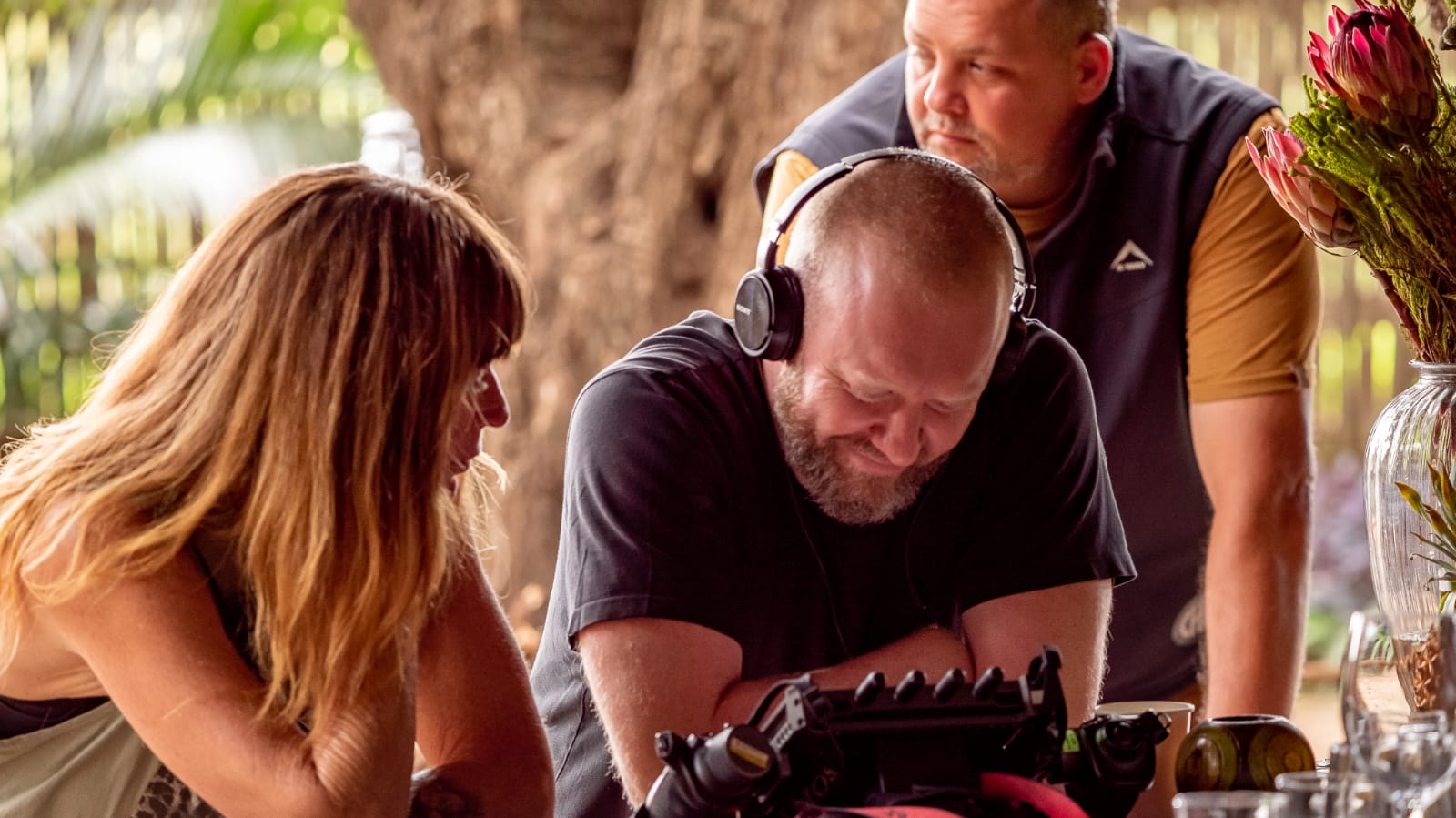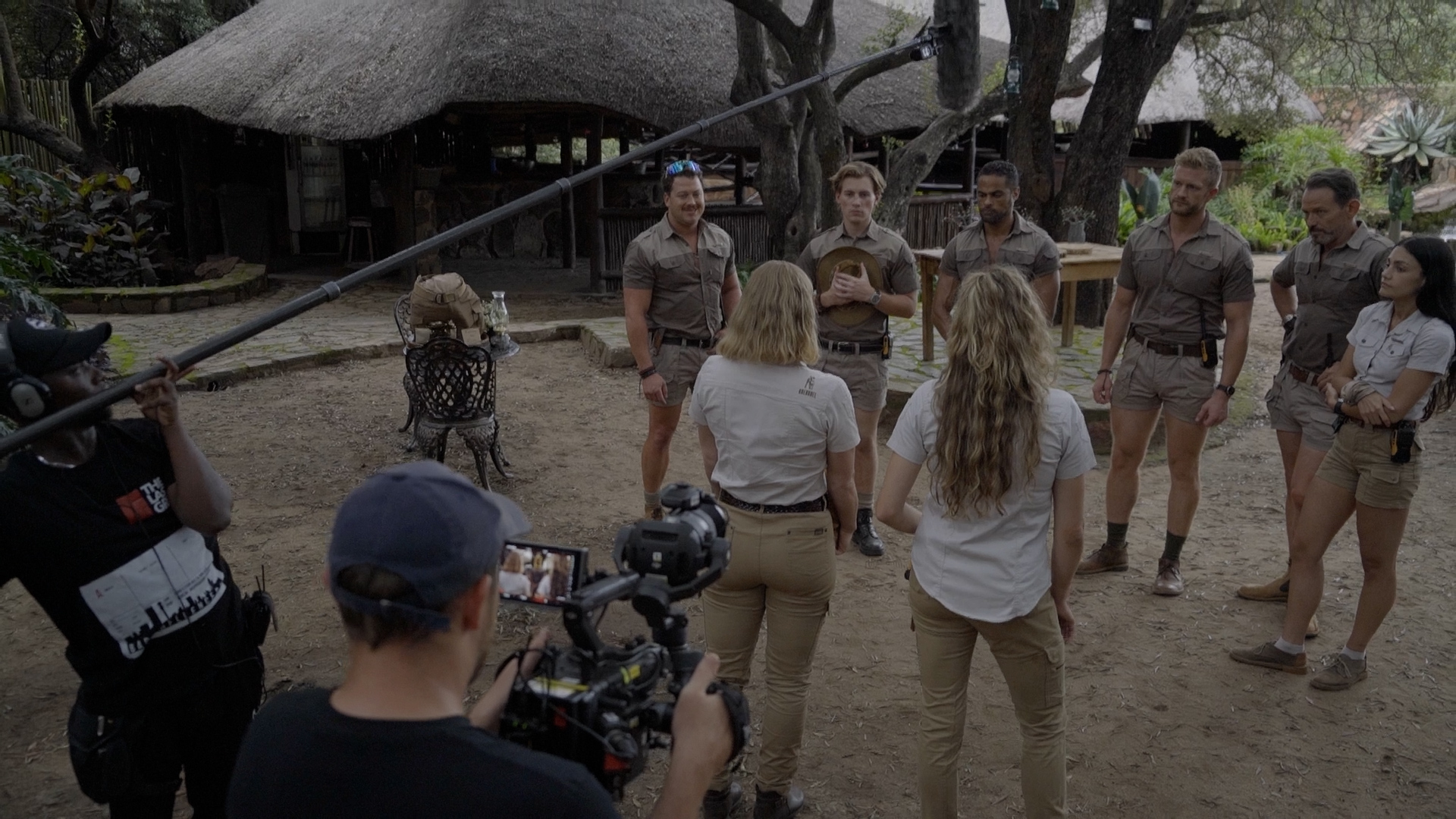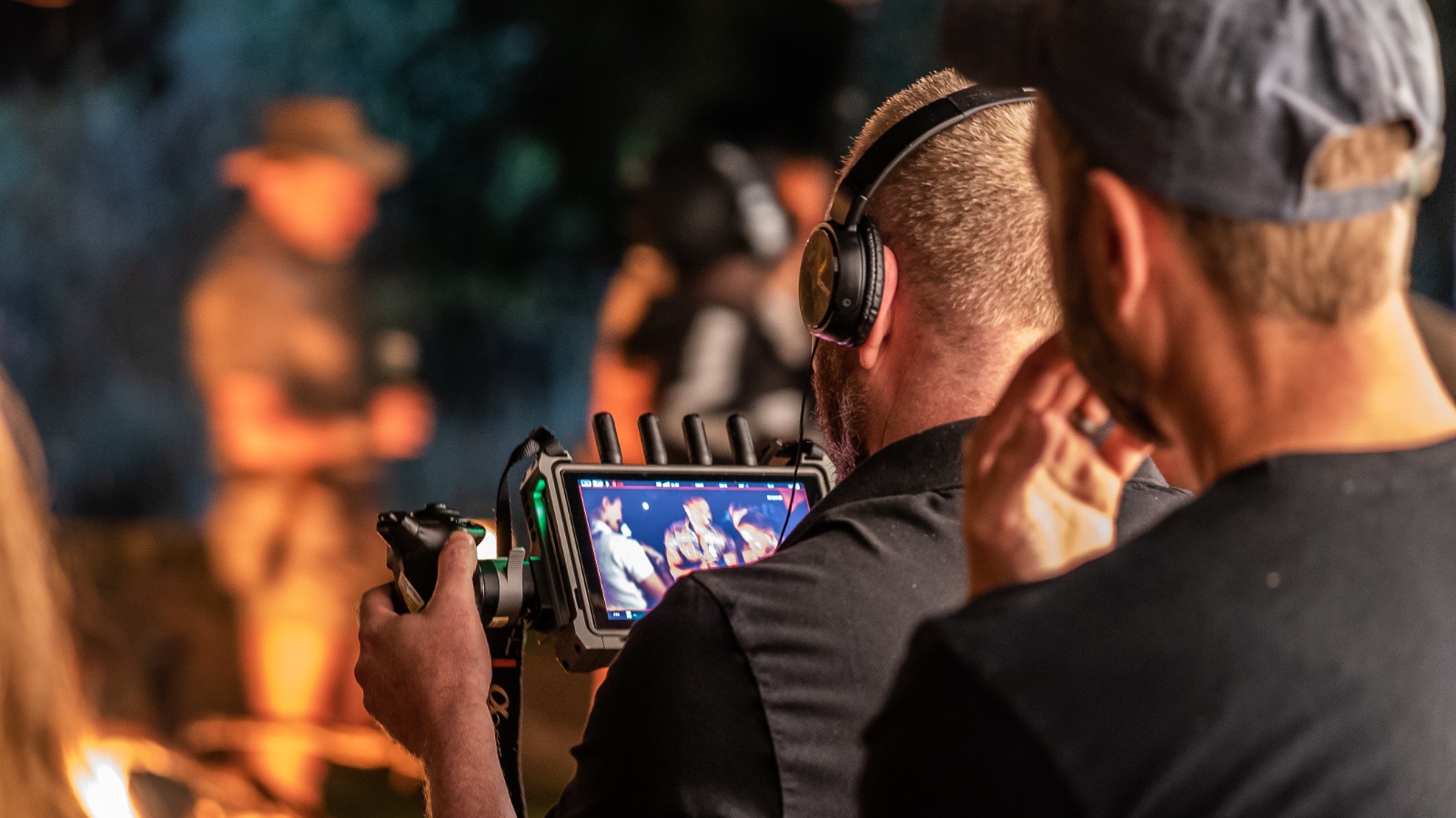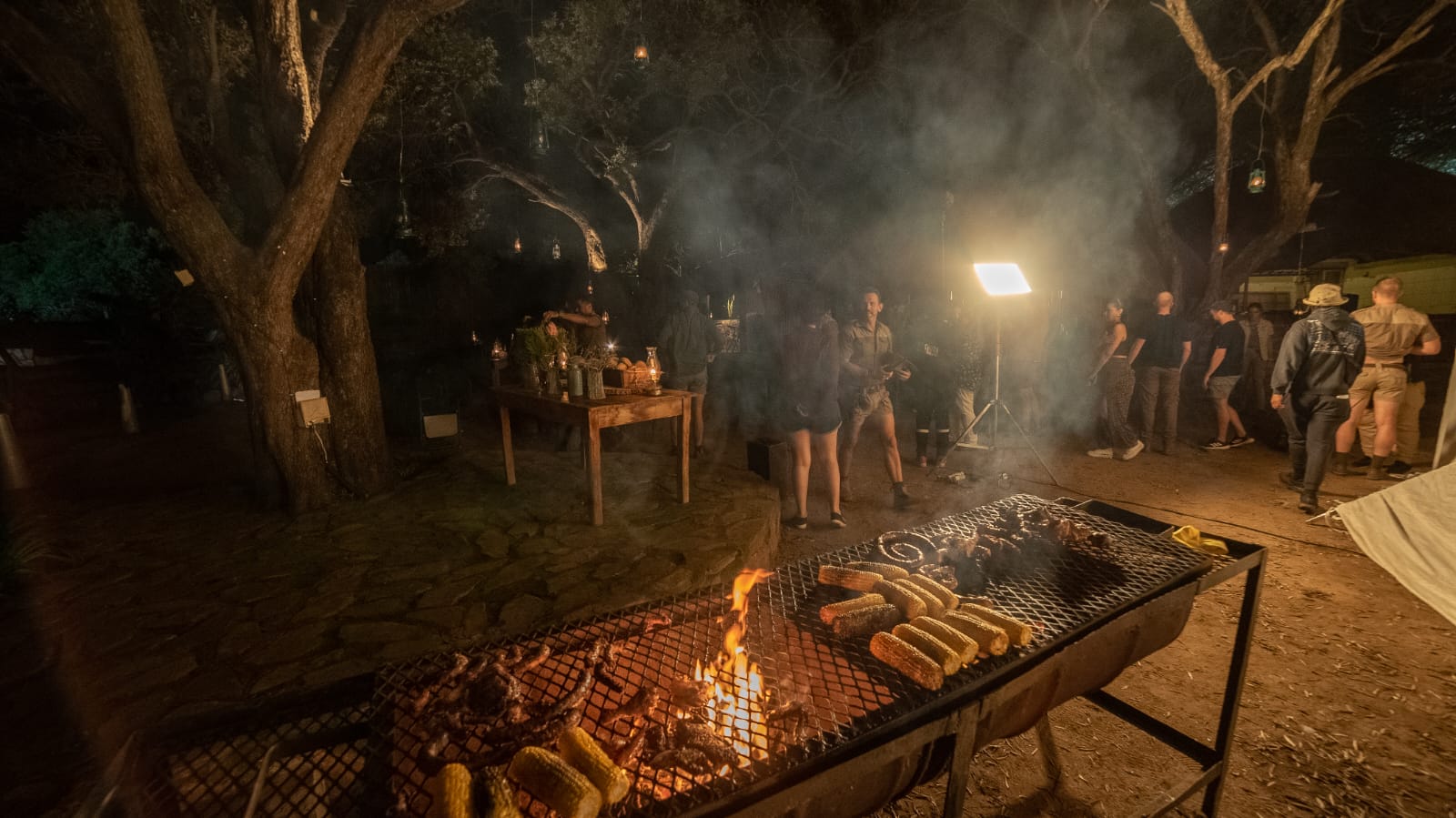



Feature film: Khaki Fever
The R-rated raunchy comedy Khaki Fever, premiering at this year’s Silwerskermfees, doesn’t pretend to offer anything to viewers but a really good time. So says SAFTA-winning filmmaker Brett Michael Innes. Best-known for his dramatic films such as Fiela se kind and Sink, Innes shifts into comedy gear alongside his husband, Nick Ahlers, who co-wrote the script.
Khaki Fever, filmed over 18 days with most of the actors wearing the shortest of shorts, tells the story of a group of game rangers taking part in a challenge to see who can hook up with the most tourists during the season. Naturally, things go sideways …
Innes tells us more about the film:
What sparked the idea for Khaki Fever?
My husband, Nick, who co-wrote the script with me, loves the bush, and whenever there is a holiday with family, we go to a game reserve. The term “khaki fever” is one that we always joke about whenever we’re there, especially if there are rangers that come out in those short boere-kinis. We always joke about catching khaki fever.
We’ve had conversations with rangers and with people within that industry about it. I can’t say it was formal research, but we’ve certainly heard some stories from them … And every ranger we’ve since bumped into, we love to tell them about the movie to see their reaction, and they’re like, “You’re hitting the nail on the head …”
Tell me about writing with Nick? How did you balance the professional with the personal?
Well, I mean, we’re still married, and we haven’t killed each other! We went in with eyes wide open.
He comes from the world of conservation as an environmental consultant, but he’s had a front row seat to all the films and TV shows I’ve done since Fiela se kind, when our relationship started. He’s had quite a holistic film school.
We brainstormed together, and then we stumbled into our way of working. Once we plotted out the main story, I told him to have a bash at it and write the first act. And he was pretty good at it, so he carried on writing the whole thing, and then I also took a pass at the script. We found a good way of making it work, and we’re now already onto our second project together.
The dialogue is fast-paced and comes across as very natural. Did that come from the script, or did improvisation from the actors create that flow?
Traditionally, I’m a very curated director, and although there’s flexibility on set, I go in with a very clear vision. But with Khaki Fever, we wanted to create a script where the plot and the gags were tight, with some one-liners that could work in Afrikaans.
But you’ve got an Englishman and an American making a boere comedy, so we knew the kind of dialogue we wanted would not come from us. We specifically prepped the actors that this would be an improv set.
Any time they did a scene, they would do multiple versions of it, which is how Bridesmaids was done, and that was a very strong reference for how we created this film. That freedom was what allowed us to create something quite special. You just have to be prepared to catch lightning.
This is very different from your work, even from your other projects at the Silwerskermfees this year: The Heart is a Muscle and My f*k, Marelize! Did you approach the film any differently because it’s a comedy?
I’m a fan of different genres, so I’m not a drama snob who looks down on horror or comedy. For me, it’s a case of if I’m a fan of the genre, it also means I know the rules or the expectations of that genre and how to create accordingly. I always saw myself as this type of prestige director, and that comedy wasn’t this space to play in, even though I love the genre. But that changed after my first comedy, Daryn’s Gym. I treated Khaki Fever like a drama in terms of how I directed the actors. We did the same work around character background and plotting out an arc, and if you look at the film, there are some gorgeous dramatic performances from them.
The casting is spectacular. Tell me more about the audition process.
Honestly, this was one of the hardest films to cast. That’s why we made use of Christa Schamberger, who is one of the best casting directors in the country. But we put the brief out wide, and we were upfront about the content; we weren’t tricking people. We made it clear what type of film it was, that it would have the protections of things like intimacy coordination, but that there would be nudity.
For some actors, it’s their first time in a film of this capacity, like Sean Brebnor. And then, like Liam Bosman, to see him as charming and comedic, people will see him differently. He and Francois Jacobs had the best gags for improv.
And even Trix Vivier – no one expects Trix to be in a film like this. I think she brings legitimacy to it as well, and she loves it! Every time we’ve watched it together, she’s just like, “What the hell, this is ridiculous!” And Ilse Klink. She’s so good! She knocked it out of the park. She’s brilliant.
The hardest part for me as a director was when they were all together because they got on so well. They would edge one another on and become funnier than the character was supposed to be, so I had to keep them on track with who their characters were.
Part of the casting is choosing people who are lekker and not coming with an ego attached. The actors would come in on their off days just to hang out on set; that was the kind of set we had.
How do you think audiences will react to Khaki Fever?
We kind of feel that people are either really going to love it or really hate it, and that’s good odds to me. It’s such a subjective type of humour, and I’m very interested to see how the public responds to it. This is a film for people who like filthy comedy with a heart, and if you’re conservative or not into this style of humour, you will know within the first 30 seconds it’s not for you.
I love making heavy kind of social commentary stuff, but I don’t think the world has bandwidth for that now. So, if people walk out of this movie, laughed their asses off, and felt like they’ve hung out with friends – that is a great gift.
